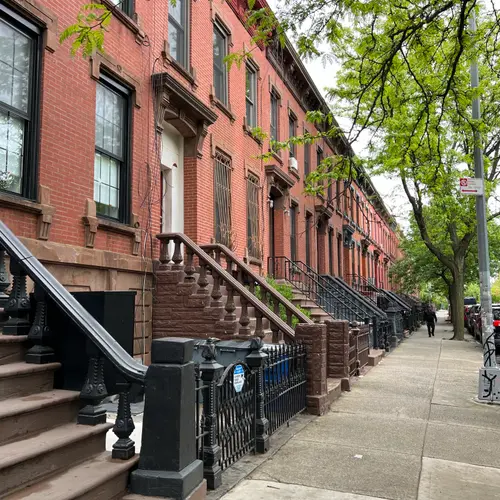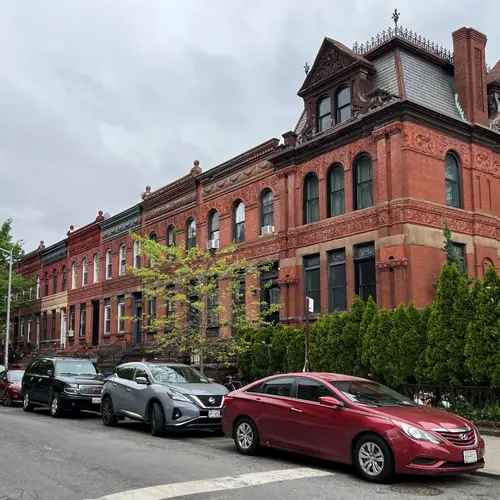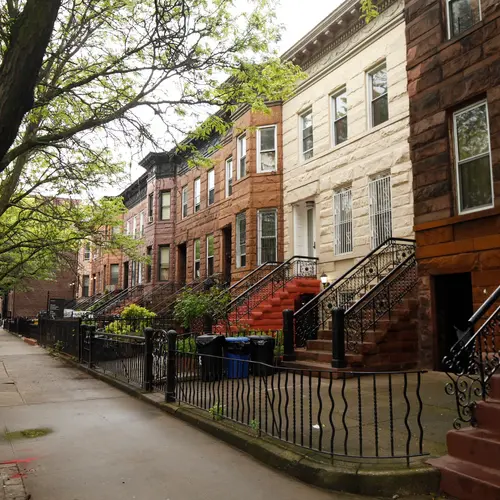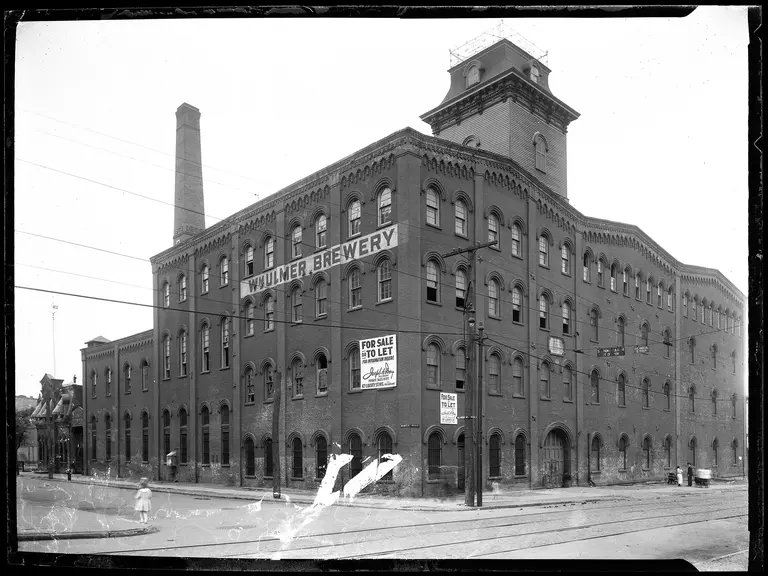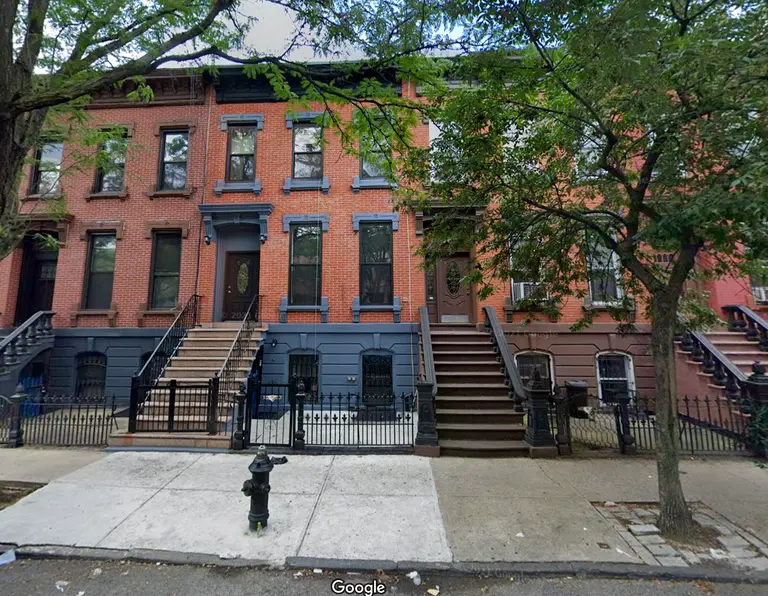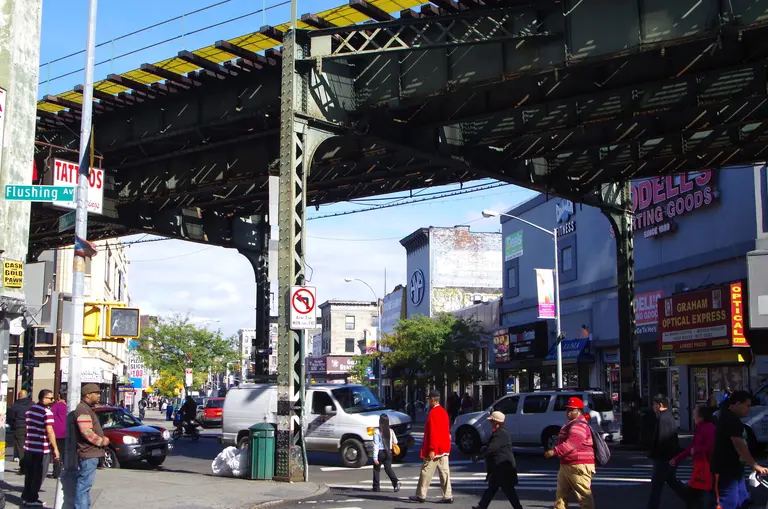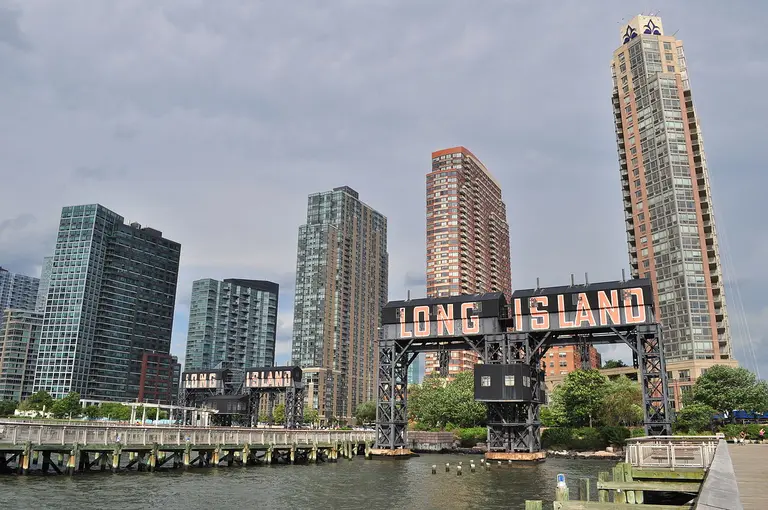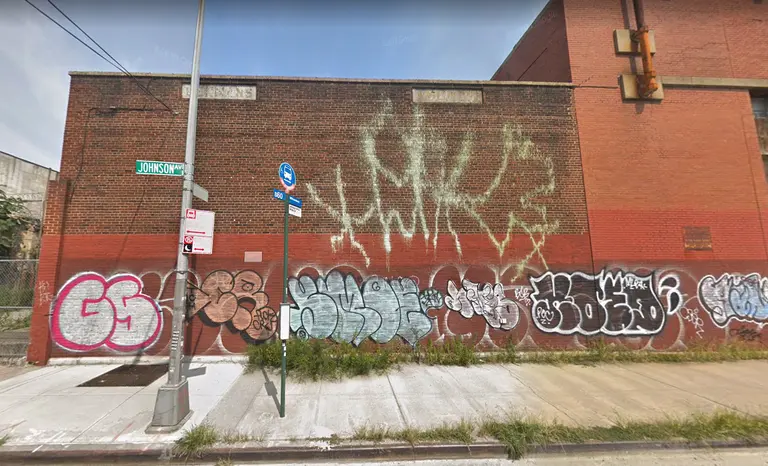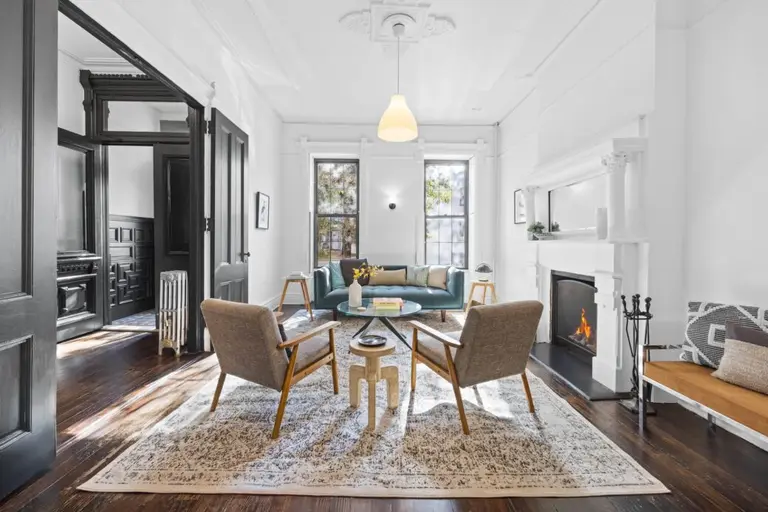NYC designates Bushwick’s first historic district
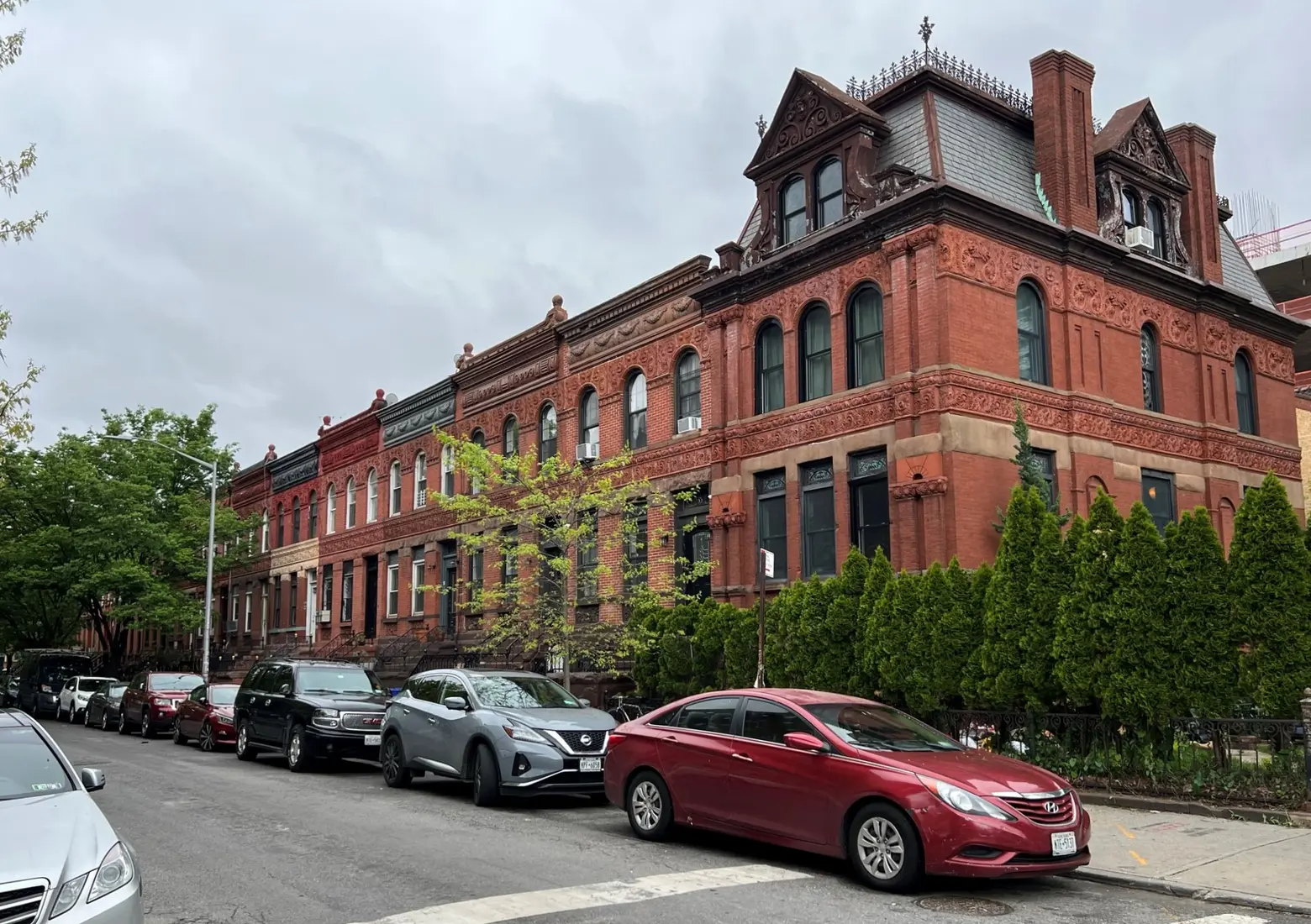
All photos courtesy of the Landmarks Preservation Commission
A block in Bushwick with a collection of intact rowhouses has been designated as the neighborhood’s first historic district. The Landmarks Preservation Commission on Tuesday voted to landmark a stretch of Linden Street between Broadway and Bushwick Avenues that represent several architectural styles of the late 19th century, including Queen Anne, Renaissance Revival, and neo-Grec. According to the commission, the Linden Street Historic District represents the neighborhood’s transition from farmland to residential and boasts a “unified streetscape with a strong sense of place.”
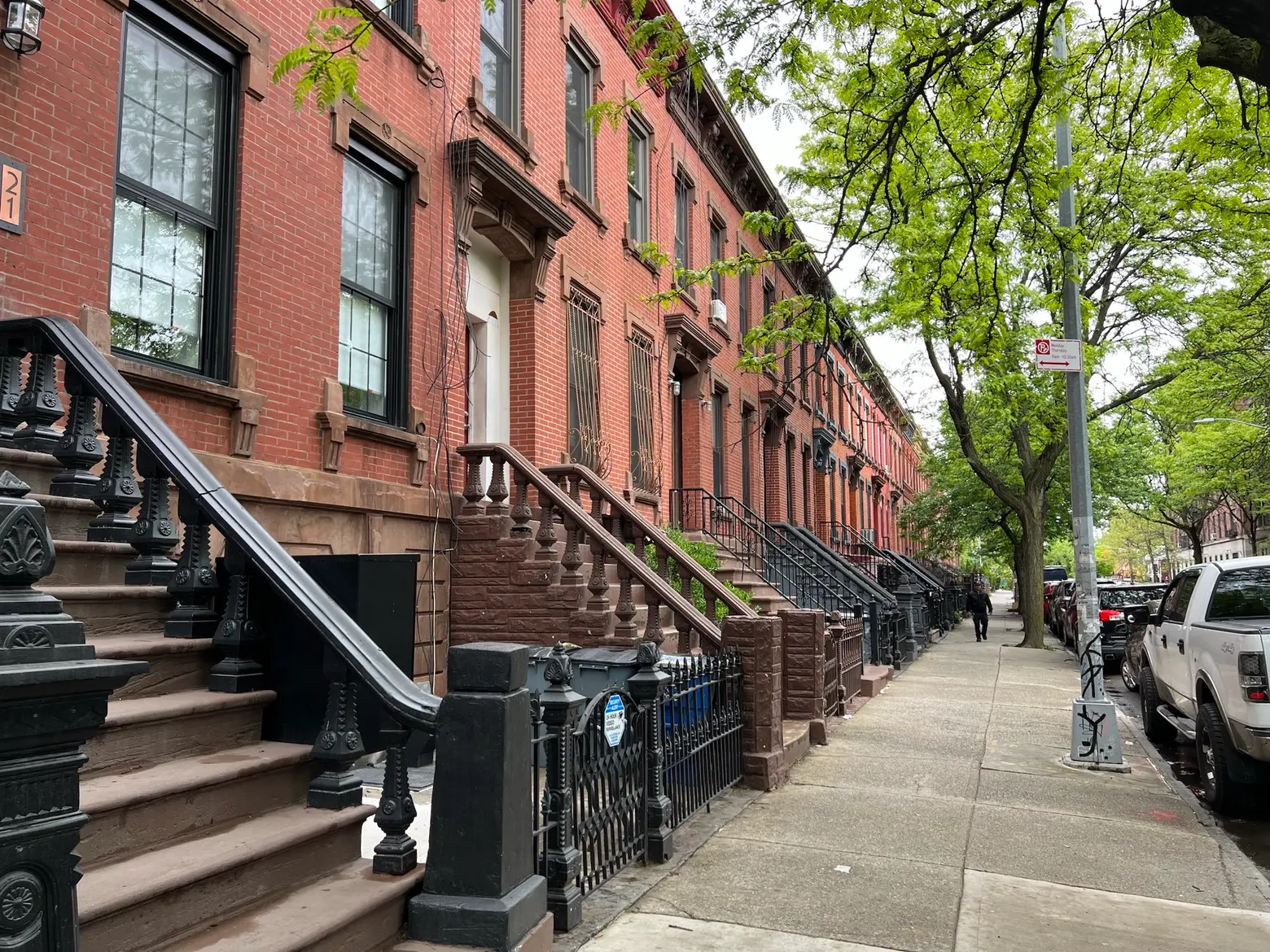
“The Linden Street Historic District is the first historic district designated in Bushwick, and advances LPC’s equity goals,” Sarah Carroll, LPC Chair, said in a statement, referring to the framework the commission launched in 2021 to ensure equity and fairness in designations.
“The district contains some of the most strikingly artistic row houses in Brooklyn and is truly meritorious for its significant architecture, high integrity, and a strong sense of place. Today’s action is very important as the agency continues to designate landmarks and historic districts in areas that are not as well represented by designations.”
The Linden Street Historic District consists of 32 intact brick and brownstone townhouses constructed between 1885 and 1901. Developed by Samuel Meeker, and designed by four Brooklyn architects, the row houses complement each other while also representing distinct styles of 19th-century architecture.
On the west side of Linden Street, the 10 Queen Anne-style rowhouses designed by Frank Keith Irving are notable for their decorative bands of terra cotta and the unique end home facing Bushwick Avenue. At 21-35 Linden Street, the homes, designed by Edward F. Gaylor, feature neo-Grec details like incised shoulder lintels, bracketed sills, and cornices.
The three brownstones at 15-19 Linden Street were designed in 1901 by architect Benjamin Finkensieper and show Renaissance Revival architectural details. As 6sqft previously reported, two of the homes on either end have angled bays while the middle has a rounded bay. Designed by Charles E. Palmer, the intact row of 11 rowhouses at 14-34 Linden Street combine Romanesque and Renaissance Revival styles.
According to LPC researcher Marianne Hurley, the area has seen many changes since it was chartered as a Dutch colony in 1661. The opening of the Broadway elevated train spurred Bushwick’s transformation from a rural area to a commercial and residential hub. The neighborhood’s population took a hit following World War II and during the period of unrest citywide in the 1970s and 80s. But in later decades, new housing has attracted an influx of immigrants from all over, as well as artists, musicians, and young professionals. Despite this evolving history, this block of Linden Street has remained.
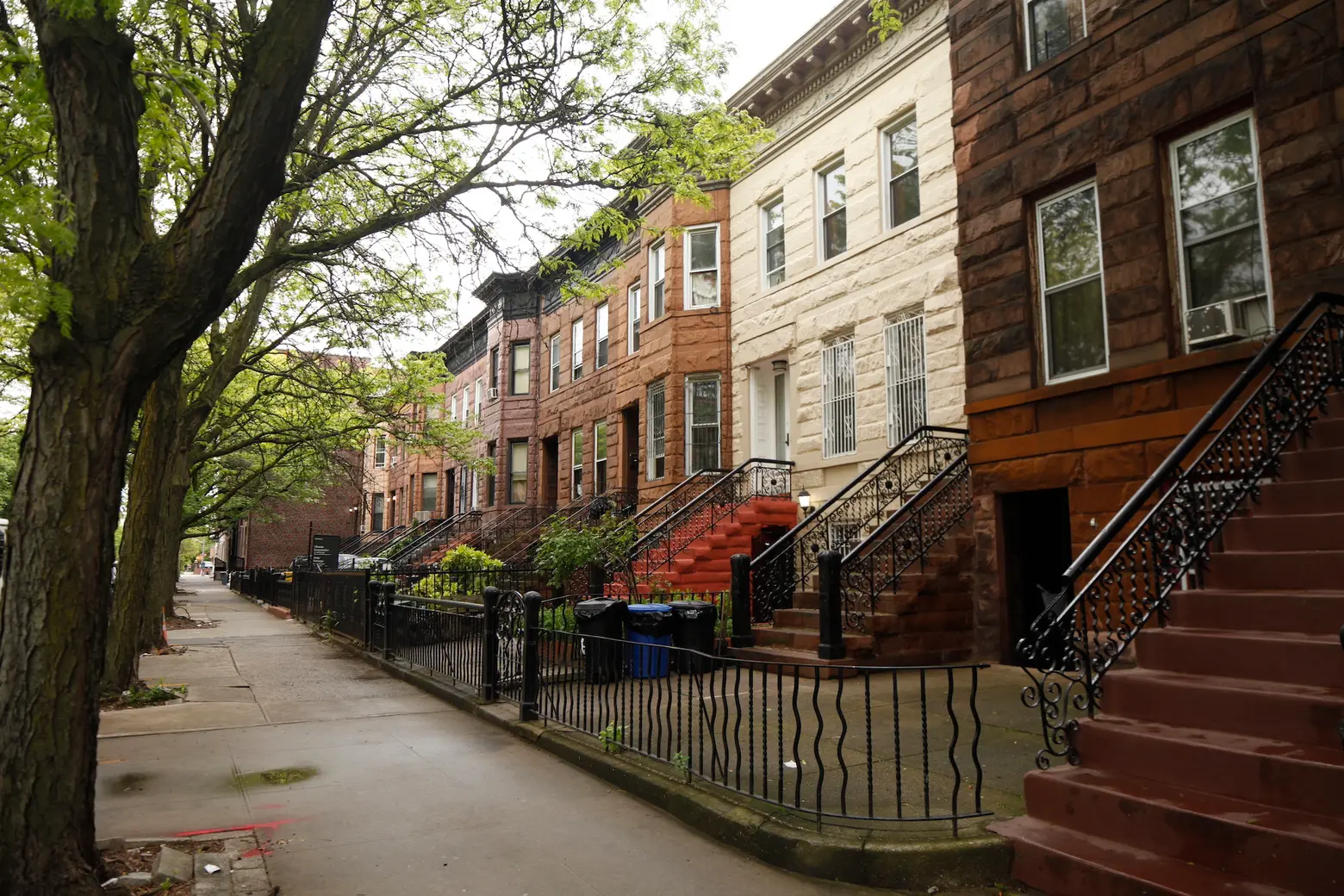
“Today, the Bushwick neighborhood has continued to experience ongoing revitalization and Linden Street reflects a diversity and vitality of its surrounding neighborhood,” Hurley said during Tuesday’s meeting. “Remarkably, this section has remained intact over the years, resulting in a consistent historic landscape.”
Council Member Jennifer Gutiérrez called the designation a “triumph for the Bushwick community.”
“As one of the original six Brooklyn towns, Bushwick’s rich history is unfortunately often overlooked. This historic district’s striking collection of architecturally significant row houses stands out as an intact and distinctive example of South Bushwick’s late-19th-century development, and its preservation is a testament to our commitment to safeguarding our city’s heritage,” Gutiérrez said in a statement.
“With so few landmarks remaining in Bushwick, lost to fires, gentrification, and speculation, it is all the more important that we protect and celebrate the ones that remain. I am delighted that this harmonious streetscape will be recognized as a landmark for generations to come.”
RELATED:
- Bushwick block with diverse 19th-century architectural styles may be landmarked
- NYC designates Flatbush block with distinctive ‘Kinko houses’ as historic district
- Two tudor-filled areas in Queens’ Cambria Heights designated as historic districts
Photos courtesy of the Landmarks Preservation Commission
